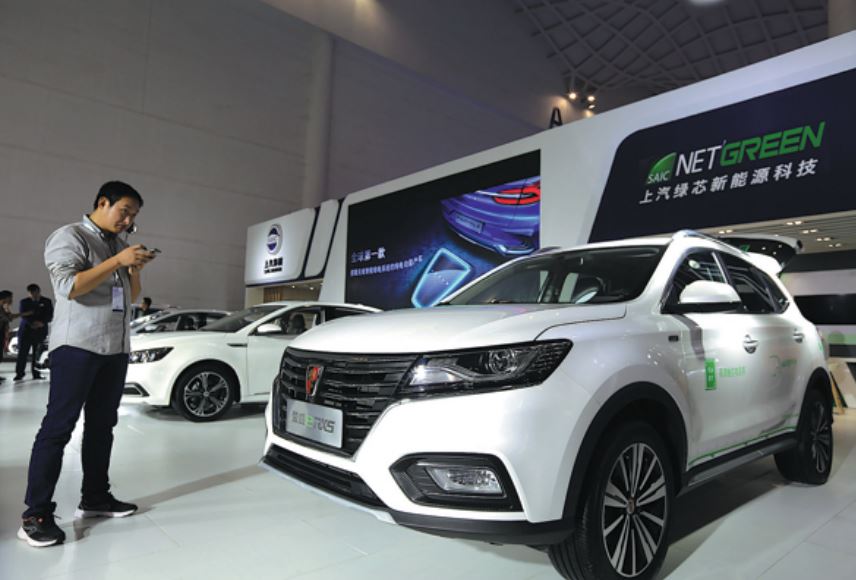Tech giants extend reach to drivers' in-vehicle experience

China's top tech companies are extending into the automotive industry, fighting for control of in-vehicle system and onboard entertainment as smart and connected vehicles are becoming a daily reality.
Last week, e-commerce giant Alibaba and China's largest carmaker SAIC Motor announced they will deepen cooperation to build the new-generation smart vehicles.
As part of the deal, the two will restructure their joint venture, connected vehicle service provider Banma Network.
After the move, Alibaba will become Banma's largest shareholder and the e-commerce giant's in-vehicle system YunOS will be integrated into Banma's business.
Besides tens of thousands of SAIC vehicles, the YunOS has already been used in models of other brands such as Ford, Skoda and Baojun.
The system features facial recognition of drivers, augmented reality mapping and navigation, robotic assistance and car chat to allow car owners to send voice or text from voice-assistant-enabled steering wheels.
Alibaba said it will further open Banma to the automotive industry and it will also expand its partnership with SAIC to cover businesses including autonomous driving and mobility.
Alibaba also announced partnerships with international carmakers Audi, Renault and Honda in June on voice services in cars, which will integrate Tmall Genie Auto, an artificial intelligence platform developed by Alibaba AI lab.
Just two days ahead of Alibaba-SAIC announcement, Tencent unveiled a voice-operated version of its popular WeChat social app for use in vehicles in partnership with Changan.
China's most popular messenger, with more than 1.1 billion users, will be embedded in new car models coming to the market later this year, the two companies said at the annual Smart China Expo in Chongqing.
Tan Benhong, a vice-president of Changan, demonstrated the function on the company's CS75 Plus SUV. It allows drivers to give voice commands or use a button on the wheel to check unread messages, send new messages and make calls on WeChat.
Tencent CEO Pony Ma Huateng said that the game of the automotive industry and the internet industry used to be singles and now it is doubles, and every major player is teaming up with partners.
The tech giant is also establishing a joint venture with Changan to develop a connected car system, which will be open to other carmakers as well, said the CEO.
Tencent, which is trying to transform itself from a consumer-oriented social and gaming firm to an enterprise service provider, said in a statement it had secured partnership agreements with 21 automakers including BMW, Mercedes-Benz and Audi to roll out solutions for connected cars on 45 models, according to Reuters.
Baidu, China's top search engine operator, has been focusing on autonomous driving, with its Apollo system having attracted scores of carmakers from China and abroad.
The latest ones on the growing list are Volvo's owner Geely and Japan's Toyota, which partnered with Baidu in July to work on areas related to artificial intelligence amid a push for self-driving cars.
Baidu will provide Apollo Minibus, a software product for autonomous bus vehicles, to Toyota's e-Palette vehicles in the future.
The search engine operator will also work with the automaker to explore more uses of autonomous driving technologies, said Li Zhenyu, vice-president of Baidu, who is in charge of its intelligent driving unit.
With Geely, Baidu will cooperate in AI applications such as intelligent connectivity and smart mobility.

